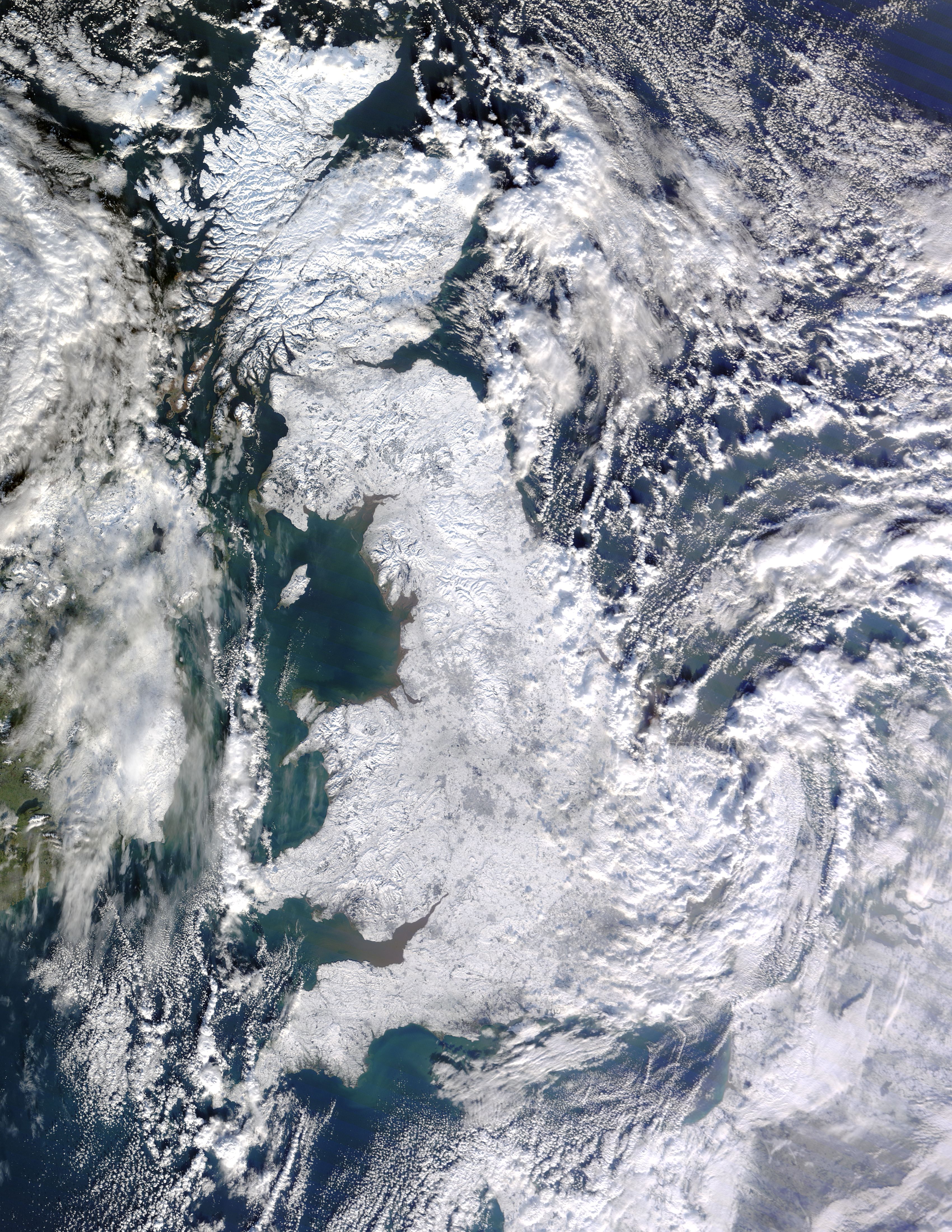
Winter of 2009–10 in Great Britain and Ireland
The winter of 2009–10 in the United Kingdom (also called The Big Freeze of 2010 by British media) was a meteorological event that started on 16 December 2009, as part of the severe winter weather in Europe. January 2010 was provisionally the coldest January since 1987 in the UK.[1] A persistent pattern of cold northerly and easterly winds brought cold, moist air to the United Kingdom with many snow showers, fronts and polar lows bringing snowy weather with it.
See also: Winter of 2009–10 in Europe
The first snow fell on 17 December 2009, before a respite over the Christmas period.[2] The most severe snowy weather began on 5 January in North West England and west Scotland with temperatures hitting a low of −17.6 °C (0.3 °F) in Greater Manchester, England.[3] The snow spread to Southern England on 6 January and by 7 January the United Kingdom was blanketed in snow,[2] which was captured by NASA's Terra satellite.[4] The thaw came a week later, as temperatures started to increase.[2]
The winter weather brought widespread transport disruption, school closures, power failures, postponement of sporting events, and 25 deaths. A low of −22.3 °C (−8.1 °F) was recorded in Altnaharra, Scotland on 8 January 2010. Overall it was the coldest winter since 1978–79, with a mean temperature of 1.5 °C (34.7 °F).